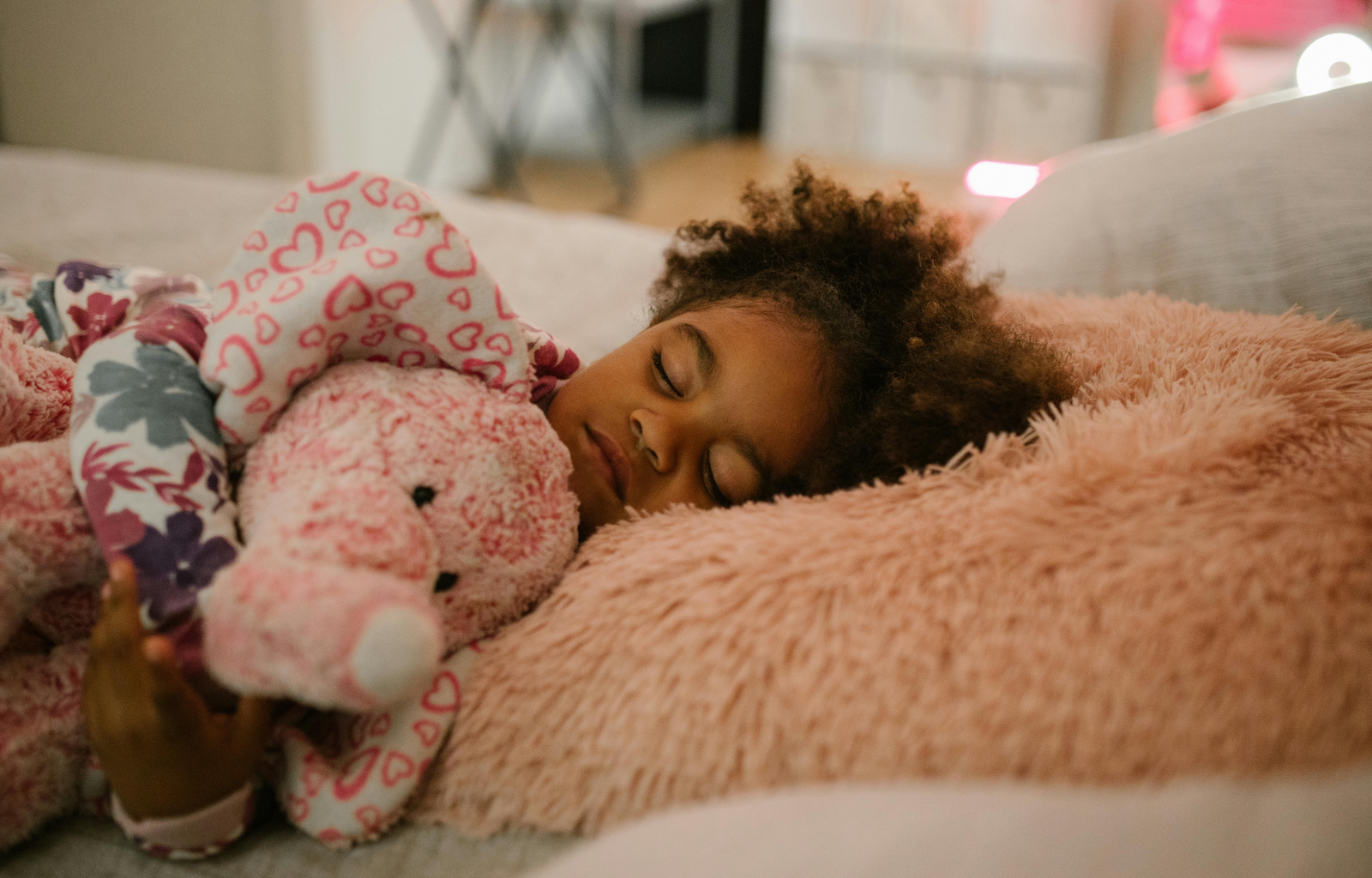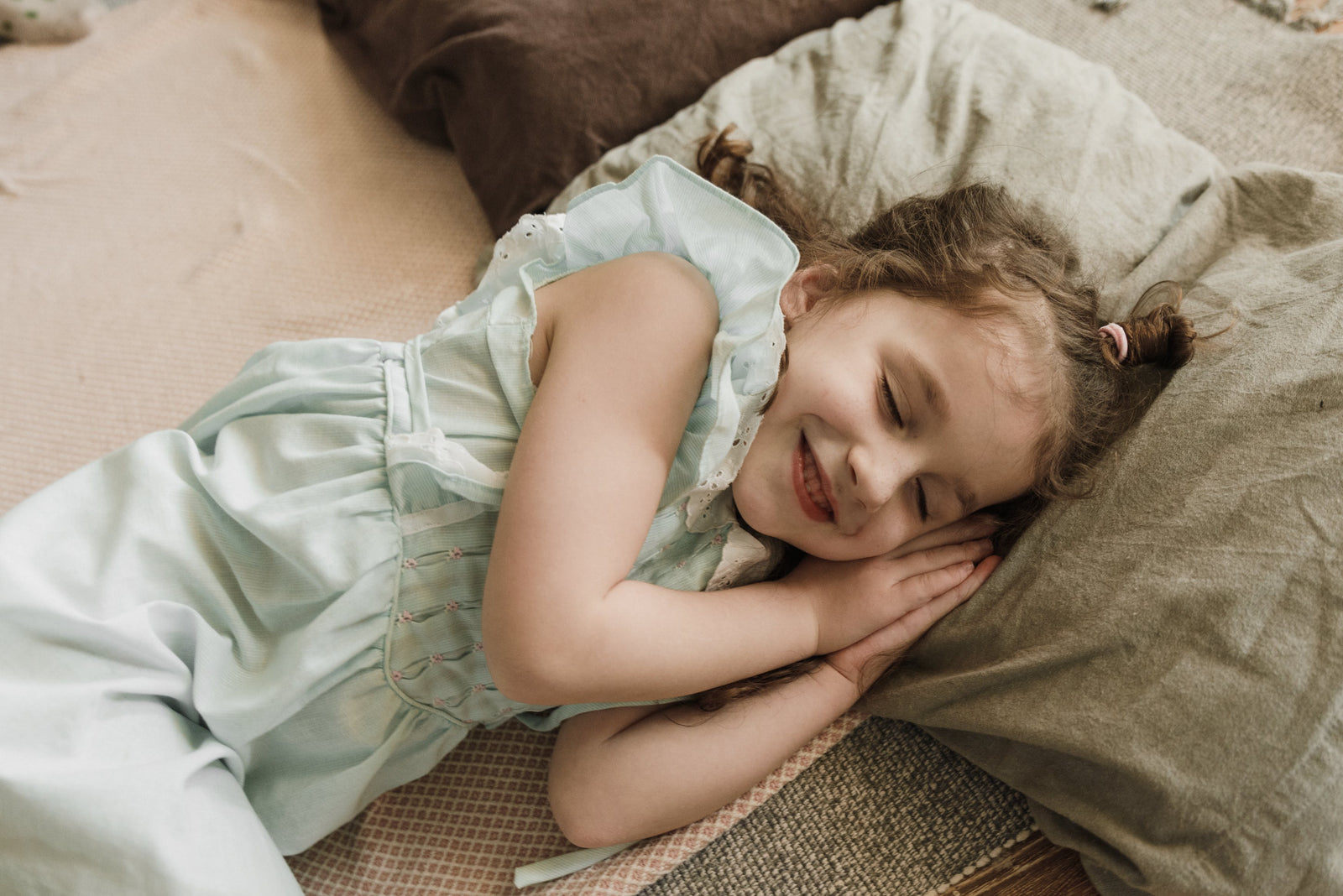
Each year, thousands of people sit down before New Years Day to reflect on the past year and make resolutions for the year ahead. We ask ourselves: how do we want to improve our relationships, our careers, our health? A few resolutions continue to arise year after year… one of them being to get more sleep. Why?
It is clear that as a society we are well aware of the positive and necessary effects of a good night's sleep on our physical, mental, and cognitive health. Yet, even though we are quick to acknowledge that our health—and overall quality of life—would improve if we got more sleep, it is one of the fastest abandoned resolutions. In actuality, there are few goals that are more beneficial than achieving consistently good sleep
Why You (and your child) Need Sleep
Good sleep is crucial for a person’s health at every stage of life. As adults, sleep is critical to maintain and sustain our mental and cognitive wellness. Our fully developed brains deteriorate with age; sleep cannot prevent or reverse these natural effects, but it is our best bet to combat the timeline and severity. If it is as important for an adult with a fully developed brain to achieve a certain quantity and quality of sleep, consider what the effects of sleep, good or bad, have on children whose brains are still growing and developing. Matthew Walker, neuroscientist and author of Why We Sleep, puts it succinctly and pointedly: “Deep sleep is the driving force of brain maturation.” Consistent, good sleep should be a priority in all households, but especially households with children; and the earlier parents begin instilling and practicing effective sleeping routines with children, the better.
Our children need sleep—for their brain development, academic potential, and physical wellbeing. When children sleep, the body creates a haven of restoration and processing. The body has a chance to catch up with all of the day’s events, store information, and get itself ready for another full day come the morning. In order for a child to operate at their best, especially at school, they must be well-rested. If a child is not getting enough good sleep, it can significantly affect their school day; it can alter their memory, critical thinking skills, and mood/behavior regulation. Chris Winter, neurologist and author of The Rested Child, emphasizes the negative effects of lack of sleep on a child in school. He stresses that the effects of lack of sleep often present themselves as inattention and—if you are questioning your child’s attention or impulsivity—be sure to also ask about and monitor your child’s sleep.

"But my kid hates going to bed! What do I do?"
How do we begin to make smarter and healthier sleep habits for our families? It starts with us. As parents, educators, caretakers, we need to be informed about sleep so that we can model, practice, and pass on lasting healthy sleep habits to children. Establishing a consistent sleep routine early on is key to instilling good sleep patterns for families and children. Children respond well to a consistent structure that they understand and can predict—this is why so many teachers intentionally build and reinforce expectations and routines at the beginning of each school year. When children are aware of the systems around them and know what to expect, they can prepare for their day and there is much less pushback. Teachers often utilize children’s books to help introduce topics and start conversations around why community expectations and routines are important—you can do the same with your child around sleep. Some excellent resources are Goodnight to Your Fantastic Elastic Brain by JoAnn Deak and Terrance Deak,Naomi Learns the Importance of Sleep by Dr. Jonathan Kushnir, andThe Magic of Sleep by Vicky Woodgate.
Invite your child to be a part of the process when you talk about sleep routines and give them a chance to take some ownership of this part of their day. While there should be no negotiation of things like electronics leading up to bedtime, there is certainly some flexibility on the order and parts of your child’s nighttime routine. Ask them the order they’d prefer to brush their teeth and put on their pajamas. Give them a choice of nighttime activities to calm down to. You could even turn these preferences into a mutually agreed upon checklist that they can go through each night; we have one on our website that you can check out here. When you give children the opportunity to be involved in the decision making process and help them feel that their thoughts and ideas were included, they are more committed and supportive of the rules and routines in place.
Perhaps the most important thing you can do to help ensure you know what is occurring with your child’s sleep is to talk about it. Whether your nighttime routine is harmonious or you are experiencing pushback, maintain an open line of communication between you and your child about their sleep. Ask your children questions about their sleep and really listen to what they are saying when they respond. A child’s sleep preferences will inevitably change as they get older and their body and circadian rhythm changes, so do not be alarmed if routines change. Introducing a sleep journal is also a great way to check in with your child’s sleep. A sleep journal gives a child a place to reflect and document how their sleep was the night before and how they felt the morning or day after. It also provides parents with a great chance to ask questions about what works and what doesn’t, or start a conversation about sleep preferences or habits. If you’re curious about what prompting questions might be on a sleep journal or if you’d like to use one with your child, you can find ours here.
Good Night's Rest = Good Day's Play
When you prioritize sleep, you prioritize the wellbeing of your body and mind. When we sideline good sleep, we establish routines that do not benefit anyone in our lives, especially our families. Similar to starting and sticking to other health related goals or resolutions, it takes a conscious, consistent effort. And, when the benefits that come with establishing good sleep habits fall into place, other tasks become easier. It’s likely that achieving this New Year's Resolution could assist in the success of other goals too!













Leave a comment (all fields required)